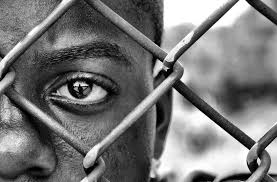
di Milena Massini
Relying on the data collected in the survey EU-MIDIS II, the European Union Agency for Fundamental Rights (FRA) published the report “Being black in the EU” last November. The report is meant to shed light on the various forms of discrimination and racism that are currently affecting people of African descent and immigrants from sub-Saharan countries. The survey takes into consideration 12 EU Member States, including Italy, and it shows that “being Black” in the EU often means facing prejudice and exclusion from multiple perspectives in daily life. Indeed, despite the European legislation against racial discrimination and racism has been strengthening recently, the gaps in the implementation of such relevant EU law remain wide and worrying.
Analysing the responses of 5,803 interviewed people among African immigrants and persons of African descents, the EU-MIDIS II sample provides a quite representative depiction of the situation, often indicating large differences among the surveyed countries. The survey monitored five major realms of discrimination.
1) Racist harassments and violence. 30 % of the respondents experienced racially based forms of harassments and violence in the last five years; two thirds of the victims did not report the facts to any authority either because they did not trust the police or because they were afraid of police officers. These figures are particularly worrying given that racist crimes do not only affect the victims but their entire communities: such people are targeted because of a perceived membership to a particular group.
2) Racial profiling. 24% of African descent respondents has been stopped by the police in the last five years and nearly the half of them perceived the stop as racial profiling, Italy holding the highest rate (70%) of people who experienced this racist practice. It is also remarkable that men are three times more likely to be stopped than women (22% vs 7%).
3) Discrimination is a reality in many areas of life. Two fifth of the respondents felt discriminated for racist motivations over the last five years when looking for work, at work, in education or in housing. The most common reason for discrimination is the skin colour (27%), with Italy being the fourth for highest rate (37%) after Luxembourg (53%), Austria (45%) and Germany (37%). Ethnic origin (19%) is the second ground for discrimination indicated in the report, and Italy shows the second highest rate ( 34%) after Luxembourg (42%).
4) Participation to labour market and schooling. Four in five respondents felt discriminated for their skin colour when in contact with school authorities and one in ten respondents experienced discrimination in education settings.
When trying to access the labour market, one in four (25%) persons felt discriminated for racist reasons when he/she was looking for a job, Italy holding one of highest rate (46%), and 8 out of 10 believe skin colour or physical appearance is the main reason for it. Type and quality of job performed is also an issue since 26% of the respondents works in elementary occupation, despite the fact that one in ten (9%) of them have completed tertiary education, and where the national average of total population performing such type of job is 10%. To be noticed that in Italy the share of young respondents who are neither in paid work nor in education or training is among the highest (42%) having also the most significant difference with the general population rate (20%).
In Italy men experience racist discrimination 10% more than women when looking for a job and only one in three women respondents are engaged in paid work, compared to the average three out of four men in most EU countries.
5) Housing exclusion. Having access to public housing or looking for a private accommodation turned out to be a discriminating experience for 21% of the respondents. In Italy alone, 31% of African descent were prevented from renting accommodation by a private landlord because their “racial” or ethnic origin. More than half of the respondents (55%) are at risk of poverty in terms of household income and 13% of African descent say they have great difficulties in making ends meet.
On the one hand, the above data attest that black people are being highly discriminated all over Europe. On the other hand, the research should be considered as a warn for European policy-makers to create stronger and more practical measures to implement the currently existing legislation and promote equal opportunities.


